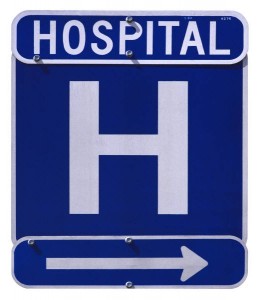It’s likely open enrollment for you at work, which means it’s the time of year that you get to select your health insurance at work. There very well might be more than one plan that you could select from, and you’re likely (hopefully) doing your homework and making your selection. Towards the later part of your benefit document, there might be something called an HSA or FSA. If you’re like me, you probably ignore that section and keep going. However, HSA and FSA are actually very powerful parts of the healthcare insurance puzzle, and with a little planning and a little research, you might just be able to save several hundred (or thousands) each year on healthcare.
What are they and how do they save me money
Health Savings Accounts (HSA) or Flexible Spending Accounts (FSA) are becoming more and more common with our health insurance. These are separate accounts in which you save money, taken out of your paycheck and then when it comes time to pay for healthcare; you then use that money for it. The cool part of both of them is that they are tax-free. That means that a $100 contribution to your account does not have taxes (20-30%) taken out of that amount, and you get to spend the whole $100 towards healthcare. Similar to other tax incentives, the government gives tax incentives to the things they want you to do (i.e. buy a house, save for retirement and in this case, be prepared for health expenses). You may not know this but medical expenses are actually the leading cause of bankruptcies here in the US. Once in your account, the money is yours to spend on healthcare. Hopefully insurance will pick up the majority of your claims but we all know that using healthcare more often that not involves us having to pay out of pocket, whether it’s deductibles, co-pays or non-covered benefits. The truth of the matter is that most of us each year will have to pay out of pocket for health expenses, and so you might as well use tax-free money to do so! Practically, the account will come with a debit card and you’ll swipe and as long as it is for an approved health expense (don’t worry most things are covered). Definitely keep track of your receipts along with other important tax documents.
What are the differences between the two?
There are two main differences in a HSA and FSA. An HSA can be rolled over year to year, so if you have some money in the account at year’s end, it’ll just roll over into the next year. It’s your money to keep and you can actually invest if (like an IRA) where hopefully it’ll grow. It might be a long-term strategy to have this build up over time. Conversely, a FSA is use it or lose it, and if you have money at year’s end; whoosh, it’ll disappear. There’s clearly a winner between the two in my mind.
The other main difference is that with a FSA, you can spend the money upfront before you’ve set it aside. So, if you elect to put $1,000 in a FSA, your company will pull out $1,000/how ever many paychecks you get in the year each time you get paid. You won’t have $1,000 right away but if you say were getting a major procedure in January, you could actually spend all $1,000 of it right away, so that’s pretty cool. However with a HSA, you can only spend what you have saved.
How do I decide what’s right for me?
For me, all things equal, I’d rather have a HSA. I’m decently healthy (knock on wood) right now in my life so I don’t need a ton of money for healthcare so a FSA probably wouldn’t be that useful in terms of saving long-term. A HSA allows me to save over time and put money aside for future healthcare expenses. For 2018, you can set aside $3,450 each year into a HSA but with a FSA you can only set aside $2,650. With these savings accounts, you can only have one or the other, so you’ll have to choose. In most cases, the plan you select will have one or the other. Technically for a plan to qualify to let you start a HSA, it has to have a high deductible ($1,350 in 2018), so not all plans will qualify. Depending on the plan you choose, it will offer a HSA or a FSA, but not both. I’d say weigh the plans with the FSA or HSA and take them into consideration.
What amount should I set aside, and any other gotchas?
With a FSA, it’ll be super important to calculate the right amount to put in – as you certainly don’t want to lose it! With a HSA, you’re not at risk of losing it but as you have to use the money for health expenses, you wouldn’t want to put so much money in it that you put yourself in a situation where you need the money for something else. Pulling money out and using it for something else will incur a 20% penalty, and then you have to pay taxes on it, quite a steep penalty.
I’d recommend taking a look at what you’ve spent on out-of-pocket health expenses over the past few years to help you plan for the coming. If you normally only spend $250 on out-of-pocket expenses, then it certainly doesn’t make sense to put much more than that. Also consider carefully expenses that might come up (i.e. surgeries you’ve been putting off, planning to have kids, getting new glasses etc).
All in all, a HSA or FSA can be an awesome tool that will save you money on healthcare by letting you pay with tax fee money. Weigh the options carefully and do some planning and you could be saving money on healthcare!


 Personal Finances are certainly top of mind for many of us. If you're looking to get serious about improving your financial situation, we've got lots of great materials all over this site! Additionally, we realize that there's a lot of noise out there, and so we created PERSONAL FINANCIAL GUIDES focused on topics with all the info you need, and without any of the noise/ads/clickbait.
Personal Finances are certainly top of mind for many of us. If you're looking to get serious about improving your financial situation, we've got lots of great materials all over this site! Additionally, we realize that there's a lot of noise out there, and so we created PERSONAL FINANCIAL GUIDES focused on topics with all the info you need, and without any of the noise/ads/clickbait.
Don’t forget about childcare expenses!